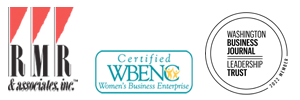The Who-What-When-Where-Why and How of Trade Show Marketing
By Robyn M. Sachs
President, RMR & Associates, Inc.
Who are you trying to reach?
Trade shows are like radio stations and state fairs. Each one has a particular audience. A DJ who played country tunes for his rock-and-roll audience wouldn’t have the job very long. And a company selling Idaho memorabilia wouldn’t expect to do well at Ohio’s state fair. Several trade shows in an industry may have the same audience; others may have overlap but distinct differences, too. It’s easy to be overwhelmed by the many choices of trade shows, but once you define your target audience, you can zero in on the shows that serve that group best.
What are you trying to accomplish?
Sales? Leads? Name recognition? Set measurable MARCOM objectives and let your staff know exactly what they are. How many sales or leads will make it worth exhibiting at that show? Set a budget for each show, taking into account exhibitor’s fees, materials, equipment, your booth cost, travel, expenses, meals and other budget items for your staff.
When do you expect to meet this goal?
As soon as possible, right? Realistically, though, if you need to sell 8,000 of your world-renowned, classic widgets at the trade show, you’ll want to choose the show that’s known for high-volume selling on the exhibit floor (i.e. the Consumer Electronics Show in Las Vegas) – not the show that bills itself as the forum to unveil new products. Study your industry’s trade journals’ ads and articles. Talk to the contacts at the organizations running the shows. Before you commit, ask your peers in the industry of their experience with each show or attend yourself first. Does the show really bring in the audience you need? Can you actually achieve the sales or leads/goals you expect?
Where are you willing to go?
This decision is partially determined by your budget. A trade show that’s farther away is likely to cost you more than one that’s closer, especially if driving instead of flying is an option. And a show that’s in a resort area or an expensive city may cost you more in hotels and meals (i.e. New York City) — although they often offer good deals because of the volume they attract, so don’t count these shows out without doing the research first. There are more than monetary costs to consider here as well. How much time will you or your staff be out of the office for each show, and does that matter? If your staff travels regularly in search of sales, their being out of the office is not an issue. But if they conduct substantial business from the office, that’s something to consider.
Why trade shows?
Is a trade show the best avenue to meet your goals? Or are you attending simply because it’s a tradition for your company? Tradition is not necessarily a bad reason to go, either. Seeing and being seen by your industry peers and potential customers reinforces your presence in the marketplace and promotes essential networking. Just take the time to go over the above questions again to be sure you’re considering the right shows and that you have set measurable objectives and a sound budget. Don’t be afraid to make some changes to the way you’ve exhibited in the past if your answers lead you in that direction.
How will you promote and run your exhibit?
This may be the most important question of all. How well you promote and run your exhibit has a direct effect on how well you do in the show. Promote your presence at the show through trade journal ads, press releases, direct mail to show attendees (most trade show companies will give you this list as part of your registration package if you ask), and even just a line at the bottom of all your communications so people to look for you there. Consider how you will provide and gather information at the show. Will you have a looping video message on a laptop or a large screen? Brochures, giveaways or other handouts? Train your staff thoroughly in advance so they know the plan and feel comfortable with it. Discuss how they should talk with potential customers and the importance of standing, looking alert and showing interest in the attendees’ questions and needs. Finally, have a plan for following up with leads after the show, and require written feedback from your staff for every single lead.
Now that you’ve chosen the trade show or shows that line up with your goals and budget, you’re ready to book your spot, pack up your exhibit and hit the trade show road.
